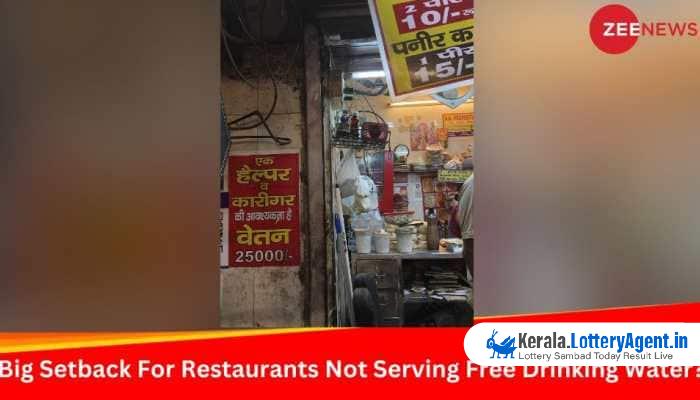
From the crowded streets of New Delhi: A simple job posting for a momo shop has unexpectedly gone viral, grabbing eyeballs for its surprisingly high remuneration package. Displayed prominently in bold Hindi on a poster, the momo eatery’s advertisement offers a monthly salary of Rs 25,000 to potential helpers or workers, prompting netizens to draw comparisons between this wage and those typically offered to new graduates in the IT sector.
Social media user Amrita Singh shared her surprise on the platform X upon discovering the advertisement. The job opportunity, with its eye-catching salary, seemed implausible for a casual dining establishment known for serving the beloved Tibetan dumplings. “This local momo shop is offering a better package than what many colleges in India offer these days,” Singh noted, sharing a snapshot of the poster for all to see.
As the image of the job posting circulated online, it quickly amassed a significant reaction from the platform’s user base. The commotion was not merely about the sum itself but the broader implications of what such a salary could mean in the contrasting worlds of the high-demand IT industry and the modest local food scene.
Some users reacted with humor and faux earnestness, jesting about their readiness to apply for the position.
“Applying right now,” commented a user who goes by Sunderdeep – Volklub, perhaps echoing the thoughts of many bemused by the lucrative offer.
Others pointed to the reality of wages in various trades, noting the competitive earnings available in professions often overlooked. One user, Survey, mentioned that a local plumber alleges to be earning Rs 50,000, suggesting that the remuneration for skilled labor could indeed surpass those for budding professionals in corporate roles.
Moreover, a user with the handle Your_NewLife added a playful twist to the discourse, highlighting an additional perk of the momo shop job, “+ free momos everyday to eat.”
The conversation took another turn when someone brought up the economics of the momo business itself. Manish Nath Agrawal pondered the cost of individual ingredients with a touch of humor saying, “Paneer ka ek piece 15 rs dega to 25000 to dega hi na,” which loosely translates to, “If a single piece of cottage cheese costs Rs 15, then they ought to pay Rs 25,000.”
The buzz around this unassuming but now-famous momo shop, and the discussion it has engendered, lays bare the vast, sometimes incongruent economic narratives within the heart of India. It brings forth questions about the value of work, the profitability of small businesses versus corporate giants, and perhaps most importantly, the definition of a fair wage in an economy as diverse as India’s.
What started as an ordinary job offer has turned into a symbol of broader economic discussions. It challenges preconceived notions about the financial prospects in various sectors and industries. With a single job posting, the momo shop inadvertently managed to stir a powerful conversation about employment, compensation, and the evolving dynamics of India’s job market.
While the identity of the momo shop remains undisclosed and the location of this unexpected social media sensation unknown, the discussion it initiated is very much in the public domain. Whether this viral momentum will translate into a positive outcome for the shop or simply remain a topic of social media intrigue is yet to be seen. However, one thing is for sure: the momo shop’s offering has put the spice back into the debate over salary expectations and job satisfaction in contemporary India.












